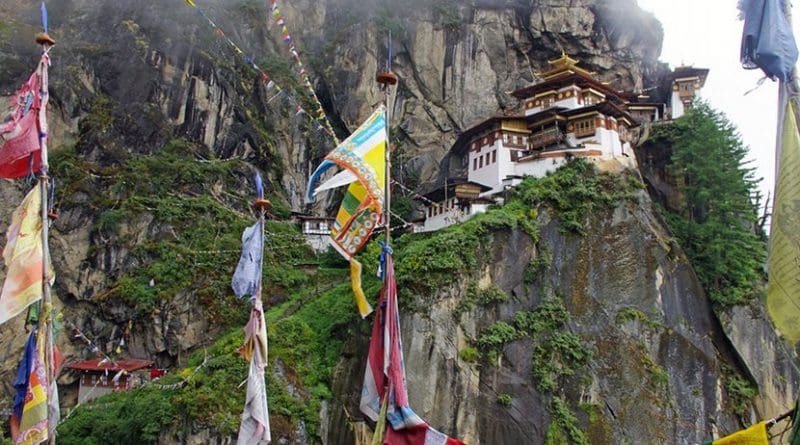Bhutan Elections: An Opportunity For Strengthening Relations With India – OpEd
Bhutan is the only democratic constitutional monarchy in South Asian region holding tremendous geopolitical importance for Asian giants, India and China. Recently the Himalayan nation held its third Parliamentary election. In Previous elections like of 2008, Jigme Thinley of Druk Phuensum Tshogpa (DPT) party won and in 2013 Tshering Togbay’s People’s Democratic Party (PDP) formed the government.
The 2018 election results unseated Prime Minister Tshering Togbay and installed Dr. Lotay Tshering of Druk Nyamrup Tshogpa (DNT) by winning 30 seats in the National assembly out of the 47-seat elected lower house of Bhutan’s Partliament.
The National council of Bhutan on the other hand has 20 seats out of which 5 seats are nominated by the King. High youth unemployment, debt to the tune of 108.6% (World Bank), 114,000 postal votes and an extensive social media campaign were cited as the reasons for this anti-incumbency wave. Nevertheless the economic indicators were promising as the country’s GDP grew at a robust rate of 8% in 2017 (World Bank).
The sector which contributed to this growth story include Bhutanese Hydro power in which India is a major trading partner. Bhutan also has a distinguished honor of being the world’s happiest nation according to Gross Happiness Index (GHI), the term ‘gross national happiness’ was first coined by the Fourth King Jigme Singye Wangchuck in the year 1972.
Dr. Lotay’s party won a historic mandate on the grounds that it would ameliorate the inequality by focusing on regions outside the State Capital Thimphu. To implement these new vision plans, a ten member cabinet was administered the oath by the current Prime Minister.
Bhutan’s bilateral relations with its neighboring countries like India have also faced some difficult times during this tenure. One of the key concerns that are challenging the bilateral relations between the two nations are Bhutan’s is hydro-electricity sector which the DNT party was campaigning during the 2018 elections. However, under the new Bhutanese government, both countries can work closely in resolving the hydroelectric projects as it contributes a substantial proportion to government’s revenues.
A couple of months back, Bhutan also drew international media’s attention concerning Doklam, a disputed territory between China and Bhutan, which also holds strategic significance for both India and China due to its proximity to India’s borders. Bhutan got embroiled into this diplomatic crisis and subsequently the issue got resolved through diplomatic channels. India’s neighborhood first foreign policy is the key to keeping this bilateral engagement on the right track.
The foreign policy of India should look beyond the existing neighborhood foreign policy paradigm. Firstly it should look into the geographic locality of Bhutan to be a buffer country. Secondly the economic and hydroelectricity deals should be in favor of both Bhutan’s current government and people’s aspirations. Thirdly the bilateral trade volume has to be doubled in the coming years and the foremost priority for policy makers should be to solidify this relation with further economic engagements like the hydro-power projects which will benefit both nations especially Bhutan.
*Srimal Fernando is a research scholar at Jindal School of International Affairs, India and an Editor of Diplomatic Society for South Africa. Siksha Singh, a scholar of Masters in Diplomacy, Law, International Business at Jindal School of International Affairs, India

